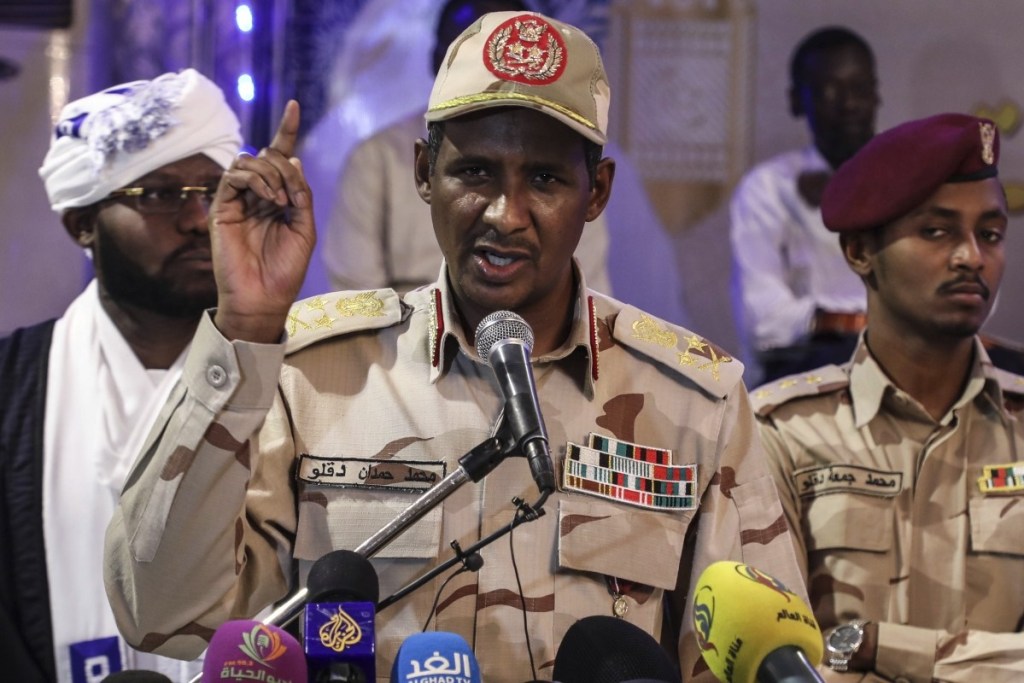
This originally appeared in the Africa section on Moguldom.com
Omar al-Bashir is out as president of Sudan, but protesters fear that the military-led transitional government may only be stepping into a power vacuum and assuming the same power infrastructure and methods of rule.
A curfew did little to suppress protester angst and energy as the protesters generally point to the presence of al-Bashir confidants in the current transitional government, such as lieutenant general Awad Mohamed Ahmed Ibn Auf, who was defense minister under al-Bashir.
Locals leaders are pressing for civilian rule and an election process. International leaders worry that further instability in the country would be regionally detrimental.
Sudan is a major crossroads between the Horn of Africa and North Africa for transport and business as well as a massive transit point of refugees and migration networks.
Civilian rule and Sudan elections
Civilian rule and elections are not necessarily the all-encompassing solution to conflict and instability, particularly instability deeply rooted in history.
Former President al-Bashir ruled Sudan for nearly 26 years with little regard for international pressure. The former president hosted Osama bin Laden in Sudan in 1990s, which led to American sanctions, as bin Laden built his Al Qaeda network.
He also presided over the 21-year civil war in southern Sudan, ultimately dividing the country into two in 2011 when South Sudan earned independence.
Sudan is also involved in the war in Yemen that is drawing major criticism from international powers. The unlikely presence of Sudan in many regional disputes in the Horn of Africa and Middle East suggest that a single election will not solve everything.
A new leader will face the difficult task of combating an economic and social environment that may foster further conflict and uprising.
First, economic trouble in the country will remain the prevailing issue until the country can create job security and access to basic living necessities.
The Sudanese government coffers have yet to recover from the drop in oil revenue resulting from South Sudan’s independence. Regardless of oil revenue levels, Sudanese leadership consistently struggles to create economic opportunity for a young Sudanese populace.
Food security and adverse weather conditions in the country further increase the instability.
The protests in April that ousted al-Bashir can be traced back to protests that started in December in relation to ballooning bread prices.
As droughts and other adverse weather conditions burden agriculture in the country, protests become more frequent with concerns over famine and food prices.
Coupled with low economic opportunity, food deficits create uncontrollable tension as there is little to do to quell the protests other than employ security forces.
Any leader (elected or not) will have a short runway for leadership if their best tool for ruling is the security forces.
The lucky or unlucky civilian leader of Sudan may only get 18-20 months before the call for their removal gains national recognition and worrisome traction.
Despots have largely focused on loyalty throughout the military and security apparatus.
Leaders either lavish their military leaders with goods and money to ensure loyalty or starve the military (while lavishing the presidential personal guard with special goods and benefits), such that the military lacks the resources to overtake the personal guard and presidency.
International pressure and support
International pressure for a civilian election is not enough to change the country’s stability outlook.
al-Bashir will likely end up at the International Criminal Court. But his removal from a prison in Khartoum will only further highlight the vacuum of leadership.
There have not been any true and well-practiced opposition parties that could participate in an election and engage the issues on a national level.
The reality of one-party, quasi-dictatorial rule does not involve political debate and engagement which is critical to cultivating ideas and solutions.
International actors should consider how they can help foster a civil society in Sudan and an environment where civilian leaders can gain a voice.
Making friends with the transitional military government and helping that military leadership to achieve stability and political transformation within its ranks should be a priority.
International powers cannot forget that transitioning to an election, and then civil society, is always a process, as was the case in the Arab Spring with Egypt, Libya, Tunisia, and Yemen.
Or better yet, consider the process to achieve civilian rule in Burkina Faso following the ousting of former president Blaise Compaoré in October 2014.
Following Compaoré’s resignation, two military leaders battled for leadership with civilian rule under Michel Kafando becoming official after 18 long days.
Kafando would rule for 300 plus days before the military removed him. He was then reinstated about two weeks later amongst international pressure from the Economic Community of West African States.
History teaches us that the happy ending of any uprising story involves some tough chapters.
Appreciating that reality helps us understand the time and financial commitment necessary to change a country’s outlook.
The protesters look to have the endurance and mentality. Does the international community have the same for Sudan?
